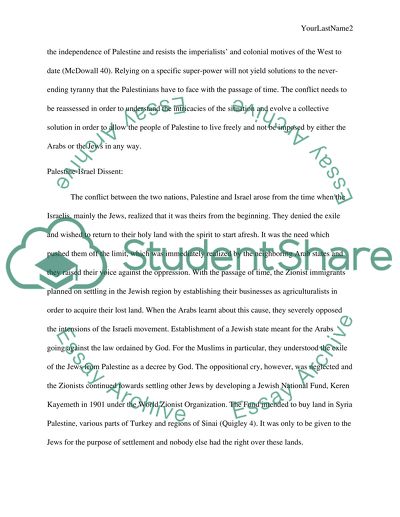Cite this document
(“Palestine-Israel Conflict Essay Example | Topics and Well Written Essays - 3250 words”, n.d.)
Retrieved from https://studentshare.org/history/1395906-palestine-israel-conflict
Retrieved from https://studentshare.org/history/1395906-palestine-israel-conflict
(Palestine-Israel Conflict Essay Example | Topics and Well Written Essays - 3250 Words)
https://studentshare.org/history/1395906-palestine-israel-conflict.
https://studentshare.org/history/1395906-palestine-israel-conflict.
“Palestine-Israel Conflict Essay Example | Topics and Well Written Essays - 3250 Words”, n.d. https://studentshare.org/history/1395906-palestine-israel-conflict.


